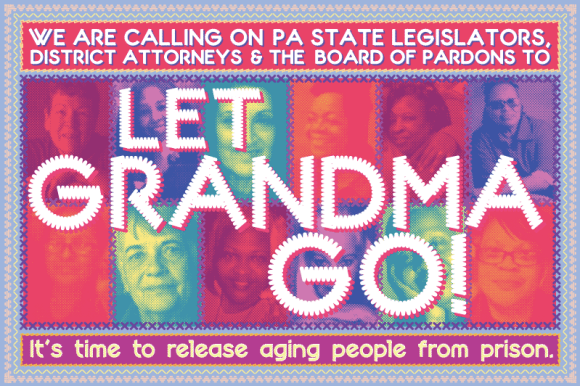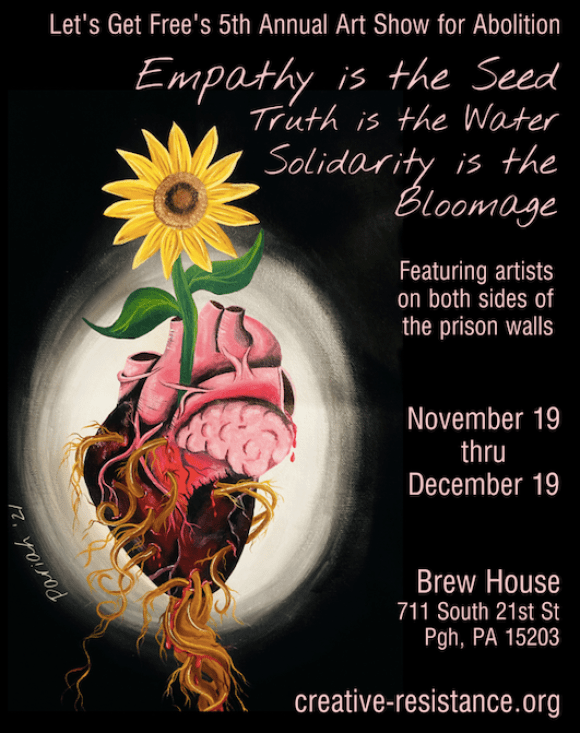Merit Review Today! If you are interested in listening to the Merit Review you can call into the Board’s Skype phone line—you will be automatically muted.
Phone: 267-332-8737
Conference Pin: 4500553373
People are called in alphabetical order with their numbers. See the entire docket here.
23. Erin D. Canady (LIFE) (3)
24. Amir K. Cartair (LIFE) (3)
46. Anthony G. Eberhardt (LIFE) (3)
49. Ralph C. Fegley Jr. (LIFE) (3)
61. Wade D. Hairston (LIFE) (3)
77. Stephen D. Knight (LIFE) (3)
79. Gary A. Kyles (LIFE) (3)
94. Melvin C. Mitchell Jr. (LIFE) (3)
104. Matthew J. Nichols (LIFE) (3)
120. David A. Richardson (LIFE) (3)
132. Edward C. Silvis Sr. (LIFE) (3)
142. Gregory A. Thomas (LIFE)
154. Jeffrey L. Watson (LIFE) (3)
156. Nathaniel J. West (LIFE) (3)
158. Doris D. Williamson (LIFE) (3)
Phoebe Tomasek [life] and Felix Ocasio [min] are up for reconsideration.
Elaine Selan writes:
This Thursday [8/5] the Board of Pardons will hold their quarterly Merit Review – this is where the Board rapidly votes on both those applicants for both pardons and commutations—this time there are about 167 applicants, of which 15 are commutations [14 men and 1 woman].
There is no discussion of any of the cases—just voting. The entire review takes about 1 hour.
Pardon – an applicant who has completed their sentence and for the most part, has, for a number of years, been successful in their community re-integration. Some have been convicted of relatively minor offenses [i.e., marijuana possession, DUI] while others, more serious crimes [i.e., assault, robbery, drug dealing, vehicular homicide] The Parole/Probation Board does their inspection of these applicants and the Board often relies on their endorsement [or not] in rendering their Merit Review vote. Pardon applicants only need a 2-3 vote to move forward to the Public Hearing.
Commutation – is reserved for those currently incarcerated for life sentences, “virtual life sentences” and other felony sentences. The scrutinizing of each applicant is conducted by the prison where the applicant is located and here too, the Board often relies on the prisons’ support [or not] in rendering their votes. A vote of at least 3-2 must be attained in order for the applicant to move forward to the Public Hearing.
For the most part during the Merit Review, the Board is focused on what the applicant has done to improve their life situation—their accomplishments and contributions—since being sentenced and/or being released.
The Public Hearings will be held on September 22nd, 23rd and 24th. Typically, the commutation hearings are held on Thursday afternoon—however, we won’t know the schedule until 1-2 weeks before the hearing. Posting of the zoom link, along with the Open Hearing schedule, will be posted to this list about one week before. Watching the pardon hearings can be very informative in learning more about how the Board conducts their review, the role each Board member plays, and the impact of all the voices heard during the hearings [i.e., applicant, supporters, victims and victim’s loved ones].
Commutation Hearings Report June 2021 by Elaine Selan
There were six individuals who had open hearings for their application of commutation on June 24th. Decisions were announced the following day. To note, one of the six applicants is not serving a life sentence—Andre Davis is serving what is called a “virtual life sentence”; that is, a term sentence that would typically exceed one’s natural life [i.e., 50-100 years]. Because he is not serving a life without parole sentence:
1. His request for commutation means he is seeking to have his minimum sentence commuted;
2. He only needs a 3-2 vote from the Board in order to be recommended for commutation; and,
3. If and when the Governor signs his commutation, Andre will have the additional hurdle of meeting the Parole Board’s approval; a process that can take a number of months. He will remain incarcerated until this Board’s approval. However, he is not required to reside in a halfway house for one year; he can transition to his home plan immediately upon his paroled release.
Three men were recommended for commutation: Andre Davis, Jamie Faust, and James Miller; together, they have served 116 years of confinement. Two applicants were denied: Denise Crump and Wayne Covington. Denise had received a unanimous [5-0] Merit Review vote; it was thought that she would receive the same outcome in the open hearing. Instead she only received one affirmative vote from the Board’s Chair, Lieutenant Governor John Fetterman. Denise has served 33 years in prison. Wayne Covington was also denied with the same voting outcome [1-4]; he has served 51 years. In both those cases, family members of the victim spoke at the hearing in opposing commutation. It is thought this was a compelling reason for the Board’s vote.
The final applicant, Kennard Scott, had his case held under advisement so that health related concerns could be further evaluated.
Three individuals scheduled for the Board’s reconsideration of their unsuccessful application for commutation failed to get beyond the initial motion stage that is required before the Board determines if they will entertain the individual’s request. Edwin DeJesus, Richard Marra, and Felix [Phill] Rosado all lost their appeals.
Cynthia Gonzalez, who is serving a life sentence, has had her application held under advisement for about two years. She has served 36 years. In their final vote on this hearing day, the Board voted 2-3 to deny her application for commutation.
Today, the Board of Pardons voted to recommend three out of six commutation applications to Governor Wolf for his approval. We are elated for Amistad Law Project client Andre Davis, as well as lifers Jesse Faust and James Miller. Governor Wolf should sign their applications with haste so that they can be reunited with their families after decades of incarceration and our communities can benefit from their presence. Each person’s freedom represents a step in the right direction.
While we celebrate those who are bound for freedom, we are deeply troubled by the Board’s decision to deny Denise Crump and Wayne Covington’s applications for commutation, as well as Richie Marra’s application for reconsideration. All three of these candidates were unequivocally supported by the administrations of the prisons in which they have been incarcerated for decades. In each of these cases, the Board blocked the applicant’s release because family members of the victim opposed their release. Family members of victims deserve a safe place to express themselves, and abundant resources to navigate their grief. However, the question of whether someone is rehabilitated and should be released is necessarily separate from affirming a victim’s pain. The Board’s role is to answer the question of rehabilitation. In the cases of Denise Crump, Wayne Covington, and Richie Marra, the Board absolutely failed in its duty, ignoring the current realities of the applicant’s life and their transformative journey over the course of decades.
The Board has also completely failed in regard to Felix Rosado’s application. Mr. Rosado is an exemplary person who, after being sentenced to life without parole when he was eighteen years old, has earned a bachelor’s degree from Villanova and co-founded a restorative justice program. He is deeply remorseful for his crime and a community leader both inside and outside of prison. Many have spoken up about the positive impact that Mr. Rosado will have in our communities as a mentor upon his release. Mr. Rosado’s continued incarceration is simply devastating for many of us on the outside as well as the communities to which he could offer positive contributions.
At its core, commutation is about mercy. It exists in response to the basic truth that all people are capable of change, and that over the course of time, many people reflect and grow and want to make up for the harm they have caused. Our movements are continuing to carve out a righteous path forward towards a Pennsylvania where people are not judged by the worst mistake they have made, and the architects of mass incarceration aren’t stealing the resources and reformed mentors our communities need to be safe, healthy, and thriving. We need Board of Pardons members who believe in this vision. As of now they are failing on most counts, but we will continue to hold them accountable and push this process forward. Our humanity and the future of our communities depend upon it.
















